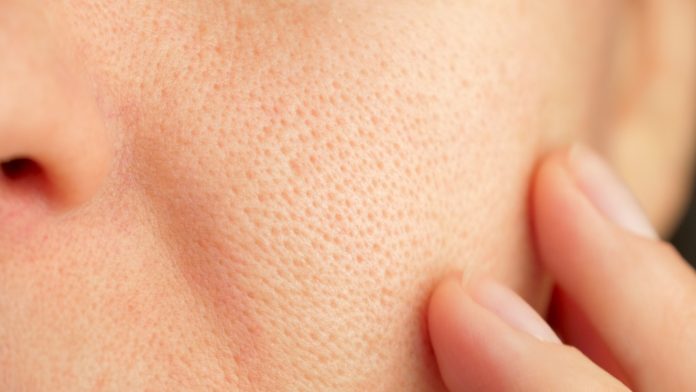
Your constipation could be undermining your complexion as toxins from irregular bowel movements emerge as stubborn skin blemishes, creating a vicious cycle of internal and external problems.
Key Takeaways
- The skin and gut are both elimination organs – when the digestive system is backed up, toxins find alternative exit routes through skin pores, causing acne and other skin issues.
- Constipation leads to estrogen recirculation in the body, creating hormonal imbalances that directly trigger skin problems like hormonal acne.
- Research shows a connection between constipation and increased risk of atopic dermatitis (eczema) and other inflammatory skin conditions.
- Improving bowel regularity through increased fiber intake, proper hydration, and consuming fermented foods can significantly improve skin appearance and health.
The Gut-Skin Connection: More Than Skin Deep
The relationship between your digestive system and skin health represents one of the most overlooked connections in personal wellness. When your bowels aren’t moving regularly, the consequences don’t stay contained within your digestive tract. Instead, your body must find alternative routes to eliminate accumulated waste and toxins. Since your skin functions as your largest organ of elimination, it becomes the default backup system when your primary waste removal pathway is compromised. This biological relationship explains why individuals suffering from chronic constipation frequently report concurrent skin issues ranging from acne and blemishes to dullness and premature aging.
“Good’ bacteria and ‘bad’ bacteria have a home in your intestines and they’ve been shown to modulate your immune response,” said Bri Botsford.
Health experts recommend having one to two well-formed bowel movements daily as the optimal frequency for maintaining both digestive health and skin clarity. When this routine is disrupted, the body struggles to eliminate toxins efficiently, forcing them to find alternative exit routes. This backup system might seem clever in theory, but the skin wasn’t designed to handle this excessive toxic load, resulting in inflammation, breakouts, and accelerated aging as your complexion becomes collateral damage in your body’s desperate attempt to maintain internal balance.
The Hormonal Consequences of Constipation
Beyond the direct toxin relationship, irregular bowel movements create a cascade of hormonal disruptions with visible skin consequences. When waste sits in your colon for extended periods, estrogen that should be eliminated gets reabsorbed and recirculated throughout your body. This reabsorption leads to estrogen dominance, a condition increasingly recognized as a major contributor to hormonal acne and other skin disturbances. The effect becomes particularly pronounced for women already navigating hormonal fluctuations during menstrual cycles, further amplifying skin sensitivity and reactivity.
“If your bowels aren’t moving, your estrogen sticks around longer than it should and goes back into circulation in the body. You have to poop every day to get your estrogen out,” stated Jolene Brighten.
The evidence connecting constipation to skin disorders extends beyond anecdotal observations. Medical research has established significant correlations between digestive irregularity and increased susceptibility to inflammatory skin conditions like atopic dermatitis (eczema). This relationship emphasizes that treating stubborn skin conditions often requires addressing the underlying digestive dysfunction rather than simply applying topical treatments. Without resolving the root cause, skin treatments become temporary band-aids masking a deeper systemic problem.
Practical Solutions for Bowel Regularity and Clearer Skin
Addressing bowel regularity represents a foundational approach to improving skin health that works from the inside out. Increasing dietary fiber intake stands as the most effective natural intervention, with experts recommending a minimum of 25-30 grams daily for women and 30-38 grams for men. This fiber creates bulk in the digestive tract, promotes beneficial bacterial growth, and facilitates smooth waste elimination. Particularly beneficial sources include leafy greens, vegetables, fruits, nuts, seeds, and whole grains which provide both soluble and insoluble fiber varieties necessary for optimal digestive function.
Hydration serves as another critical component in maintaining bowel regularity and supporting skin health. Insufficient water intake creates hard, difficult-to-pass stools while simultaneously dehydrating skin cells. Most health experts recommend consuming at least 64 ounces of water daily, with increases during hot weather or intense exercise. Additionally, fermented foods like yogurt, kefir, sauerkraut, and kimchi help replenish beneficial gut bacteria that support digestive efficiency and regulate immune responses that affect skin inflammation. These probiotic-rich foods establish healthy bacterial colonies that protect against pathogenic overgrowth.
Beyond Diet: Lifestyle Factors for Digestive and Skin Health
While dietary interventions form the foundation of improved bowel regularity, lifestyle factors also play crucial roles in maintaining this delicate balance. Regular physical activity stimulates intestinal contractions, preventing stagnation and promoting efficient waste movement through the digestive tract. Even moderate movement like a 20-minute daily walk can significantly improve transit time and reduce constipation risk. Combined with consistent sleep patterns that support natural circadian rhythms governing digestive processes, these movement practices create a comprehensive approach to digestive wellness.
Stress management represents another often-overlooked component in maintaining healthy bowel function and skin appearance. Chronic stress activates the sympathetic nervous system’s “fight or flight” response, diverting blood flow away from digestive organs and potentially triggering inflammatory responses that affect both gut and skin health. Implementing mindfulness practices, breathing exercises, or other stress-reduction techniques can help counteract these physiological stress responses, supporting digestive regularity and skin clarity. The connection between digestive health and skin appearance offers a powerful reminder that true beauty begins with internal wellness.







